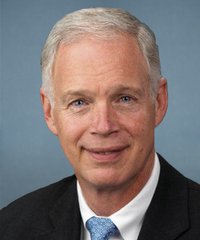
Both of Ron’s parents were born and raised on farms. Their work ethic and small-town values were naturally passed along to their own children. As a result, Ron has worked hard all his life. As a boy, he mowed lawns, shoveled snow, delivered papers, and caddied for a few extra bucks. At the age of 15, he obtained his first tax-paying job as a dishwasher in a Walgreens grill. He rose through the ranks as a soda jerk, fry cook, and finally night manager before reaching the age of 16.
He gained early acceptance to the University of Minnesota, so he skipped his senior year of High School and worked full time while obtaining his degree in business and accounting. In 1977, after graduating with a BSB-Accounting degree, he married his wife Jane, and started working as an accountant at Jostens. He also continued his education by enrolling in an MBA night program.
Trade
Wisconsin grows and manufactures many things that consumers around the world want to buy. That demand helps fuel Wisconsin's state economy and create well-paid jobs. Those jobs, and future job growth, would be at risk if the U.S. withdraws from trade agreements and cedes foreign markets to global competitors.
We live in a global economy. We do not have the luxury of deciding whether or not we wish to compete. We must compete — and Senator Johnson believes America can win that competition. Senator Johnson has a great deal of confidence in American workers, in their ingenuity, and in our ability to successfully compete with anyone in the world. America contains 5% of the world's population, yet we are responsible for more than 20% of the world's total economy. He will support free and fair trade deals that strengthen our economy and provide expanding opportunity.
Across an incredible range of goods and services—from food and forest products to motorcycles and supercomputers—Wisconsin businesses and workers rely on access to world markets. For these reasons, he was proud to have supported the Bipartisan Congressional Trade Priorities and Accountability Act of 2015, the Conference Report for the Trade Facilitation and Trade Enforcement Act, and a Senate resolution supporting a Free Trade Agreement with Taiwan.
Tariffs
Since 2018, Senator Johnson has heard from countless businesses that have described how the government imposition of tariffs has placed their businesses at a disadvantage to their global competitors. For many Wisconsin businesses, the tariffs have resulted in increased prices, layoffs, lost market access, and retaliatory tariffs on their goods. Senator Johnson has conducted oversight on behalf of these businesses to highlight the self-inflicted harm from the trade war and tariffs.